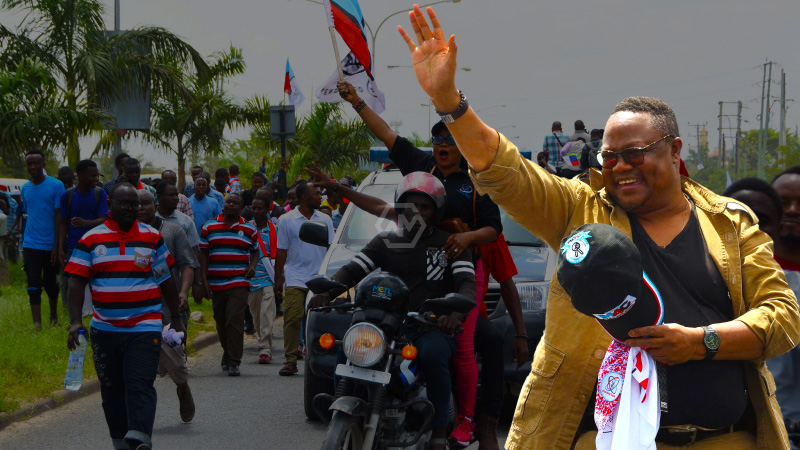- Tanzanian police arrested opposition leaders and 500 supporters during a banned rally in Mbeya.
- The crackdown raises fears of democratic backsliding ahead of the 2025 elections.
- Opposition demands the immediate release of detained leaders and calls for political reforms.
Tanzania’s political landscape is under intense scrutiny following the arrest of prominent opposition figures from the Chadema party, including Tundu Lissu, during a rally in Mbeya.
President Samia Suluhu Hassan’s initial reforms, which included lifting a ban on opposition rallies, are now being questioned in light of these arrests.
Tanzania’s Political Repression Casts Shadow Over Upcoming Elections
The recent arrest of Chadema party leaders and supporters in Tanzania highlights a growing pattern of political repression as the nation approaches its 2025 elections. Authorities justified the crackdown on the Mbeya rally, citing fears of violence, but opposition members see it as an attempt to quash dissent and maintain control. The rally was intended to mark International Youth Day, drawing attention to the youth’s role in the country’s political future.
President Samia Suluhu Hassan, who initially showed signs of reform by lifting a ban on opposition rallies, now faces criticism for allowing the repression of political opponents. This shift raises questions about her commitment to democratic principles and the extent of her willingness to depart from the hardline policies of her predecessor, John Magufuli. The opposition has been increasingly vocal about issues such as the cost of living, electoral transparency, and the need for constitutional reforms.
Tanzania’s political climate is becoming increasingly tense, with the opposition calling for international attention to the government’s actions. The arrests in Mbeya have sparked outrage among human rights organizations, which argue that the detentions are part of a broader strategy to intimidate and weaken the opposition ahead of the upcoming elections. The government’s actions have also drawn comparisons to similar crackdowns in neighboring Kenya and Uganda, where authorities have used force to suppress political dissent.
The ongoing tension between the government and opposition forces is likely to escalate as the 2025 elections draw nearer. With the arrests of key leaders and the continued suppression of political gatherings, Tanzania risks further alienating its citizens and international partners who are advocating for free and fair elections. The coming months will be crucial in determining whether Tanzania can steer away from authoritarian practices and embrace a more open and democratic political process.
The recent events in Tanzania signal a critical juncture for the nation’s political future. The government’s crackdown on opposition activities, particularly ahead of the 2025 elections, raises serious concerns about the state of democracy in the country. How Tanzania navigates these challenges will be pivotal in shaping its political landscape for years to come.
“The health of a democracy is determined by the extent to which its citizens are free to express their opinions and assemble without fear of repression.” — Unknown



